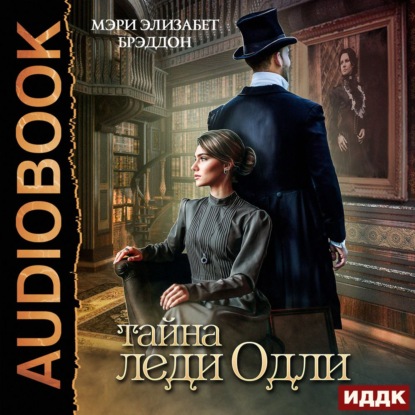
Полная версия
Wyllard's Weird
"Why do you ask me for your freedom, as if it were so great a favour?" Heathcote said bitterly, as he lifted her up from her knees. "Do you think I would have you – this mere beautiful clay – now that your heart has gone from me? Do you think I, who love you a hundred times better than I love myself, would stand between you and happiness? You are free, Dora. I have seen this misery coming upon me ever since this stranger came into your mother's house."
"And you will forgive me?" she pleaded, with clasped hands, looking at him with streaming eyes, sorry for him, deeply ashamed of her infidelity.
"Can I be angry with you, loving you as I do? God forgive you, Dora, for all your sins, large or small, as freely as I forgive your sin against me."
He kissed her unresisting lips for the last time, and so left her, as nearly broken-hearted as a man can be and yet recover.
He did recover, or was, at any rate, supposed to be cured, since, two years after Theodora Dalmaine's wedding, he married a fair young girl, penniless, friendless, and an orphan; a wife who loved him as he deserved to be loved, and who, after less than two years of wedded life, died, leaving two children, twin daughters. It was three years since the grave had closed upon her, and Edward Heathcote was still a widower, and was believed to have no thought of marriage.
He came riding slowly along the street in the fading light, a man of striking appearance, mounted on a fine horse, a man of about three-and-thirty, tall, broad-shouldered. He had a dark complexion, and dark-brown hair, deep-set gray eyes, which looked almost black under dark heavy brows, an aquiline nose, a heavy moustache and beard.
He had begun life as a younger son, and had practised for some years as a solicitor in the town of Plymouth – had been town clerk and a man of public importance in that place – when his elder brother died a bachelor, and Edward Heathcote inherited a snug little estate near Bodmin, with a curious old country house called The Spaniards. The place had been so named on account of the Spanish chestnuts which flourished there in exceeding beauty. On becoming owner of The Spaniards, and the estate that went with it, Edward Heathcote retired from the law, and went to live at the place of his birth, where he looked after the well-being of his baby girls and his young sister, and let his days glide by in the quiet monotony of a country squire's life, hunting and shooting, sitting in judgment upon poachers and small defaulters at petty sessions, and acting as coroner for his division of the county. He had been leading this life of rural respectability for a year.
He rode up to the carriage and shook hands with Mrs. Wyllard. He was her neighbour, and had visited Penmorval during the last year. There had never been the faintest indication in his manner or his speech that Julian Wyllard's wife was any more to him than a friend. He was pleased to visit her, anxious that she should be interested in his motherless children, pleased to confide his plans and his thoughts to her. Time had sobered his enthusiasm about all things, and had softened all bitter memories. He took life now as a gentle legato movement. He had lived and suffered, and done his duty, and that which was left to him was rest. He sat down among his fields and his vineyards to take his ease just a little earlier than other men, that was all. A great sorrow suffered in the morning of life ages a man by at least a decade.
"Why are you waiting outside the station-house?" he asked; "have you had an alarm of burglars at Penmorval?"
"It is something much worse than that," answered Mrs. Wyllard gravely; and then Bothwell related the catastrophe on the railway.
Julian Wyllard came back to the carriage just as the story was finished.
"This will be a job for you, Heathcote," he said.
"A very sad one. The story has a brutal sound to me, remembering past stories of the same kind," answered Heathcote. "It shall not be my fault if the ruffian escapes."
"You think there is a ruffian, then? You don't take it for a case of suicide?"
"Decidedly not," replied the other promptly. "Why should a girl choose such a death as that?"
"Why should a girl throw herself off the Monument?" asked Wyllard. "Yet we know girls had a rage for doing that, fifty years ago. However, you will have a good opportunity for the display of your legal acumen in a really mysterious case. I did all I could in my small way to put the officials on the alert along the line; and if any scoundrel had a hand in that poor child's death, I don't believe he will get off easily. Where are you riding?"
"Only for an evening stroll over the downs."
"You had better come home and have supper with us. It will be too late to call it dinner."
"You are very good, but I dined at seven. Besides, I shall have to arrange about this inquest for to-morrow. I'll talk to Morris, and then ride on to the Vital Spark, and settle matters with the people there."
The Vital Spark was the small roadside inn where the dead girl was lying. The Penmorval barouche drove off, while Edward Heathcote stopped to talk to Morris, the Inspector. The jury would have to get notice early next morning. The inquest was to be held at five in the afternoon. This would give time for the tradesmen to get away from their shops. The chief business of the day in Bodmin town would be over.
"It will give time for any one in this neighbourhood, who knows anything about the girl, to come forward," added Mr. Heathcote. "If she was going to a situation in this part of the world, as Mr. Wyllard suggests, some one must know all about her."
"What a man he is, Mr. Heathcote!" said the Inspector admiringly. "Such clearness, such decision; always to the point."
"Yes, he is a very superior man," answered Heathcote heartily.
He had schooled himself long ago to generous thoughts about his rival. It pleased him to know that Dora had been lucky in her choice, that she had not taken a scorpion into her bosom when she preferred another man to himself. He had wondered sometimes – in a mere idle wonder, when he saw her in her beautiful home at Penmorval – whether it would have been possible for him to make her life happier than Julian Wyllard had made it; whether in his uttermost adoration he could ever have been a better husband to her than Julian Wyllard had been. He had looked searchingly for any flaw in the perfection of that union, and he had perceived none. He was generous-minded enough to be glad that it was so.
The carriage drove slowly up a long hill, and across a wide expanse of heathy ground, before it entered the gate of Penmorval, which was two miles from the town. It was a beautiful old place, standing on high ground, yet so richly wooded as to be shut in from the outer world. Only the Cornish giants, Roughtor and Brown Willie, showed their dark crests above the broad belt of timber which surrounded the good old Tudor mansion. A double avenue of elms and yews led to the old stone porch. The long stone façade facing northward looked out upon a level lawn divided from the park by a haw haw. The southern front was curtained with roses and myrtle, and looked upon one of the loveliest gardens in Cornwall – a garden which had been the pride and delight of many generations – a garden for which the wives and dowagers of three centuries of Cornish squires had laboured and thought. Nowhere could be found more glorious roses, or such a treasury of out-of-the-way flowers, from the finest to the simplest that grows. Nowhere did April sunlight shine upon such tulips and hyacinths, nowhere did June crown herself with fairer lilies, or autumn flaunt in greater splendour of dahlias, hollyhocks, and chrysanthemums. The soil teemed with flowers. There was no room left for a weed.
For a childless wife like Dora Wyllard a garden such as this is a kind of spurious family. She has her hopes, her fears, her raptures and anxieties about her roses and chrysanthemums, just as mothers have about their girls and boys. She counts the blossoms on a particular Gloire de Dijon. She remembers the cruel winter when that superb John Hopper succumbed to the frost. She has her nostrums and remedies for green-fly, as mothers have for measles. That glorious old garden helped to fill the cup of Mrs. Wyllard's happiness, for it gave her inexhaustible employment. Having such a garden she could never say, with the languid yawn of the idle and the prosperous, "What can I do with myself to-day?" But Dora was not dependent on her garden for occupation. Exacting as the roses and lilies were, manifold as were the cares of the hothouses and ferneries and wildernesses, Mrs. Wyllard's husband was more exacting still. When Julian was at home she could give but little time to her garden. He could hardly bear his wife to be out of his sight for half an hour. She had to be interested in all his schemes, all his letters, even to the driest business details. She rode and drove with him, and, as he had no taste for field sports, neither his guns nor his hunters took him away from her. He was a studious man, a man of artistic temperament, a lover of curious books and fine bindings, a lover of pictures and statues, and porcelain and enamels – a worshipper of the beautiful in every form. His tastes were such as a woman could easily and naturally share with him. This made their union all the more complete. Other wives wondered at beholding such domestic sympathy. There were some whose husbands could not sit by the domestic hearth ten minutes without dismal yawnings, men who depended upon newspapers for all their delight, men whose minds were always in the stable. Julian Wyllard was an ideal husband, who never yawned in a tête-à-tête with his wife, who shared every joy and every thought with the woman of his choice.
To-night, when they two sat down to the half-past, nine o'clock meal, with Bothwell, who was not much worse than a Newfoundland dog, for their sole companion, the wife's first question showed her familiarity with the business that had taken her husband to London.
"Well, Julian, did you get the Raffaelle?" she asked.
"No, dear. The picture went for just three times the value I had put upon it."
"And you did not care to give such a price?"
"Well, no. There are limits, even for a monomaniac like me. I had allowed myself a margin. I was prepared to give a hundred or two over the thousand which I had put down as the price of the picture; but when it went up to fifteen hundred I retired from the contest, and it was finally knocked down to Lamb, the dealer, for two thousand guineas. A single figure – a half-length figure of Christ bearing the cross, against a background of vivid blue sky. But such divinity in the countenance, such pathetic eyes! I saw women turn away with tears after they had looked at that picture."
"You ought to have bought it," said Dora, who knew that her husband had a great deal more money than he could spend, and who thought that he had a right to indulge his own caprices.
"My dearest, as I said before, there are limits," he answered, smiling at her enthusiasm.
"Then you had your journey, and I had to endure the loss of your society for three dreary days, all for nothing?" said Dora.
"Not quite for nothing. There was the pleasure of seeing a very fine collection of pictures, and some magnificent Limoges enamels. I succeeded in buying you a little Greuze. I am told by French art-critics that it is a low thing to admire Greuze, the sign of a vulgar mind. He is the painter of the bourgeois, the épicier. But, for all that, you and I have agreed to like Greuze; so I bought this little picture for your morning-room. I got it for five hundred and fifty, and I believe it is a genuine bit in the painter's best manner."
"How good you are to me!" exclaimed Dora, getting up and going over to her husband.
She bent down to kiss him as he sat at the table. They had dismissed the servants from this informal meal, so Mrs. Wyllard was not afraid of being considered eccentric, if she showed that she was grateful. She did not mind Bothwell. Five hundred and fifty! How freely this rich man talked of his hundreds, as it seemed to Bothwell, pinched by the consciousness of debts which the cost of that picture would have covered – little seedlings of debts, scattered long ago by the wayside, and putting forth perennial flowers in the shape of unpleasant letters from creditors, which made him hate the sight of the postman.
Neither Wyllard nor Grahame ate a hearty meal. That picture of the dead face was too vividly present in the minds of both. Meat and drink and pleasant talk were out of harmony with that horror which both had looked upon three hours ago. They took more wine than usual, and hardly ate anything.
"Will you come for a stroll in the garden, Julian?" asked Dora, as they rose from the table.
It was half-past ten o'clock, a lovely summer night. A great golden moon was shining low down in the purple sky, just above the bank of foliage: not that far-off moon which belongs to all the world, but a big yellow lamp lighting one's own garden.
"Do come," she said, "it is such a delicious night."
"I dare not indulge myself, dear; I have my letters to open before I go to bed. I was just going to order a fire in the library."
"A fire, on such a night as this! I'm afraid you have caught cold."
"I think it not unlikely," answered her husband, as he rang the bell.
"Don't you think your letters might keep till to-morrow morning, Julian?" pleaded Dora. "We could have a fire in the morning-room, and sit and talk."
"That would be delightful, but I must not allow myself to be tempted. I should not rest to-night with the idea of a pile of unopened letters."
He gave his orders to the servant. His letters and papers were all on the library table. A fire was to be lighted there immediately.
"You will be late, I am afraid," said Dora.
"I may be a little late. Don't wait up for me on any account, dearest. Goodnight!"
He kissed her; and she said good-night, but reserved her liberty to sit up for him all the same. There is no use in a husband saying to a wife of Mrs. Wyllard's temperament, "Don't sit up for me, and don't worry yourself!" Sleep was impossible to Dora until she knew that her husband was at rest; just as happiness was impossible to her when parted from him. She had made herself a part of his being, had merged her very existence in his; she had no value, hardly any individuality, apart from him.
"Julian looks tired and anxious," she said to her cousin, who stood smoking a cigarette just outside the window.
"You can't be surprised at that," answered Bothwell. "That business on the railway was enough to make any man feel queer. I shall not forget it for a long time."
"It must have been an awful shock. And men with strong features and powerful frames are sometimes more sensitive than your fragile beings with nervous temperaments," said Dora. "I have often been struck with Julian's morbid feeling about things which a strong man might be supposed to regard with indifference."
"He is a deuced good fellow," said Bothwell, who had been more generously treated by his cousin's husband than by any of his own clan. "Won't you come for a turn in the garden? I won't start another cigarette, if you object."
"You know I don't mind smoke," she answered, joining him. "Why, how your hand shakes, Bothwell! You can hardly light your cigarette."
"Didn't I say that I was upset by that business? I don't suppose I shall sleep a wink to-night."
They walked in the rose-garden for more than an hour. Garden and night were both alike ideal. An Italian garden, with formal terraces, and beds of roses, and a fountain in the centre, a bold and plenteous jet that rose from a massive marble basin. Roses, magnolia, jasmine, and Mary-lilies filled the air with perfume. The moon had changed from gold to silver, and was high up in heaven.
It was everybody's moon now, silvering the humble roofs of Bodmin, shining over the church, the gaol, the lunatic asylum, and shining on that humble village inn five or six miles away, beneath whose rustic roof the stranger was lying, with no one to pray beside her bed.
Bothwell sauntered silently by his cousin's side. She, too, was silent, and felt no inclination to talk or to listen. She was glad to be out in the garden while her husband opened his letters. She knew there was a pile of correspondence waiting for him – such letters as devour the leisure of a country gentleman of wealth and high standing, letters for the most part uninteresting, and very often troublesome. It would take Julian Wyllard a long time to wade through them all. But when the stable clock struck twelve, Dora thought she might fairly hope to find the task finished.
"Good-night, Bothwell," she said. "I'll go and look for Julian."
The servants had all gone to bed, and the lamps had been extinguished, except in the hall and corridors. A half-glass door opened from the garden into the hall, and this was always left unbolted for the accommodation of Bothwell, who was fond of late saunterings in the grounds. The library was at the further end of the house, a superb room, filled with a choice collection of books, the growth of the last seven years; for Julian Wyllard was a new man in the county, and had only owned Penmorval during that period.
There was a good fire burning in the artistic tiled grate – a modern improvement upon the old arrangement in wrought iron. Mr. Wyllard had opened all his letters, and had evidently burned some of them, for an odour of calcined paper and sealing-wax pervaded the room.
He was sitting in a low chair beside the hearth, in a stooping attitude, deeply meditative, looking down at some object in his hands. He was so profoundly absorbed as to be unconscious of Dora's presence till she was standing close beside him.
The object which so engrossed his attention, which had led his thoughts backward to the faraway past, was a long tress of chestnut hair. He had wound it round his fingers – a smooth, silken tress, which flashed with gleams of gold in the cheery light of the fire.
"What beautiful hair!" said Dora gently, as she looked downward from behind his shoulder. "Whose is it, Julian?"
"It was my sister's," he answered.
"The sister who died so many years ago. Poor Julian! You have been sitting here alone, giving yourself up to sad memories."
"I came upon this auburn tress among some old papers just now, while I was looking for Martin's lease."
He rolled the hair up quickly, and flung it into the flaming coals.
"O Julian, why did you do that?" asked his wife reproachfully.
"What is the use of keeping such things, only to perpetuate sorrowful memories? God knows we have enough of our dead. They haunt us and plague us at every stage of life. We cannot get rid of them."
The bitterness of his tone jarred upon his wife's ear.
"My dearest, you are wearied and out of spirits," she said. "You have worked too long. Were your letters troublesome?"
"Not more so than usual, dear. Yes, I am very tired."
"And that dreadful event on the line has troubled you. Poor Bothwell is quite upset by it. I am so sorry for you, Julian," said his wife soothingly, leaning upon his shoulder, smoothing back the thick hair from the broad, full brow.
"My dear child, there is no reason to be sorry for me. Dreadful events are happening every day, all over the world. We hear of them, and feel how feeble a thing life is under such conditions as those on which we all hold our existence. This evening I happened to be brought face to face with a terrible death. That is all the difference."
CHAPTER II.
AFTER THE INQUEST
There was great excitement in Bodmin on the afternoon of the inquest; a delicious summer afternoon, which seemed made for quiet arcadian joys; an afternoon to be spent in day-dreams under forest boughs, or drifting lazily adown a placid stream; rather than for gathering together in a stifling tavern-parlour, listening to the droning accents of a police-constable, or the confused statements and innocent prevarications of a railway-porter. But it may be that the inhabitants of Bodmin had drunk their fill of the cup of pastoral joys, that they had had more than enough of heathery moorland and foxglove-bordered lane, dog-rose and honeysuckle, waving boughs and winding streams, and that this satiety made them flock to the little inn beyond Bodmin Road station, where they elbowed and hustled one another in the endeavour to get a good view of the Coroner and the witnesses.
An inquest was not in itself such a thrilling event. There had been inquests held in Bodmin which inspired neither curiosity nor excitement in the mind of the town. But this inquiry of to-day interested everybody. Who could tell what mystery – what story of falsehood and wrong – had gone before that sad, strange death? The report had gone about that the victim was a foreigner, and this gave a deeper note to the mystery. Why had she come to that spot to kill herself? or who had lured her there to murder her? These were the questions which were discussed in Bodmin freely that fair July morning; questions which gave birth to various wise and abstruse theories, every one of which seemed to the inventor thereof a most plausible explanation of this dark problem in human history.
"If anybody can throw light upon the business, Squire Heathcote is the man to do it," said Mr. Bate, grocer, general-dealer, and churchwarden.
Edward Heathcote was one of the most popular men within ten miles of Bodmin. He was a native of the soil, had been known to the neighbourhood from his childhood. He came of a race that was held in high honour, which had produced men famous with sword and gown in the days that were gone. Honour, courage, and all generous feelings were supposed to run in the blood of the Heathcotes. He had succeeded to a small estate and a fine old Grange, in which his forefathers had lived from generation to generation. In the deepest night of past ages there had been Heathcotes in the land. Thus, albeit he was by no means a rich man as compared with Julian Wyllard, he stood higher than the wealthy financier in the esteem of those good old conservatives who held that money is not everything. Mr. Wyllard was a new-comer, had bought Penmorval just before his marriage – choosing this part of the world for his residence because Theodora Dalmaine loved it, rather than for any leaning of his own. He was known to have made the greater part of his money himself – a low thing for a man to have done. Even commercial fortunes become hallowed after they have filtered from father to son for three or four generations. Thus, although he was altogether the most important personage in the neighbourhood, and belonged to the landed gentry by right of recent purchase, there were people who looked upon Julian Wyllard as a parvenu, and who were somewhat disposed to resent the weight which his wealth gave him in local affairs.
Squire Heathcote was said to be the best coroner who had filled that office at Bodmin within the memory of the oldest inhabitant. His legal experiences had been of a wider range than those of the average provincial solicitor. He had served his articles to a well-known London firm; he had travelled a good deal, and had seen men and cities. He had been brought into close relations with his fellow-men under manifold conditions; and he was said to be a marvellous reader of character, an impartial and clear-headed judge. On more than one occasion he had shown an acumen rarely met with at a rural inquest; and he had disentangled more than one knotted skein. It was argued, therefore, that if any one could unravel the mystery of the dead girl's fate, Squire Heathcote was the man to do it.
Nothing could be quieter or less pretentious than his manner as he took his seat at the head of the long table in the parlour of the Vital Spark; but there were signs of anxiety or emotion in the sombre fire of the deep-set gray eyes, and the nervous movement of the sun-burnt hand, which played with his dark chestnut-beard. He sat for some minutes looking down at his notes, and then slowly raised his eyes and surveyed the room, which was quite full.
Julian Wyllard was sitting near the opposite end of the table, with little Dr. Menheniot by his side. Bothwell Grahame was seated apart from them and nearer the jury. He had a haggard look, Mr. Heathcote thought, as of a man who had passed a troubled night.












